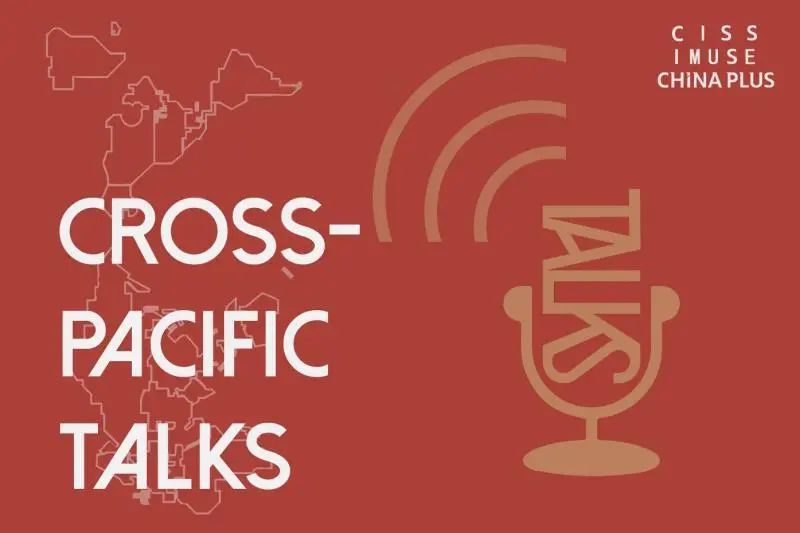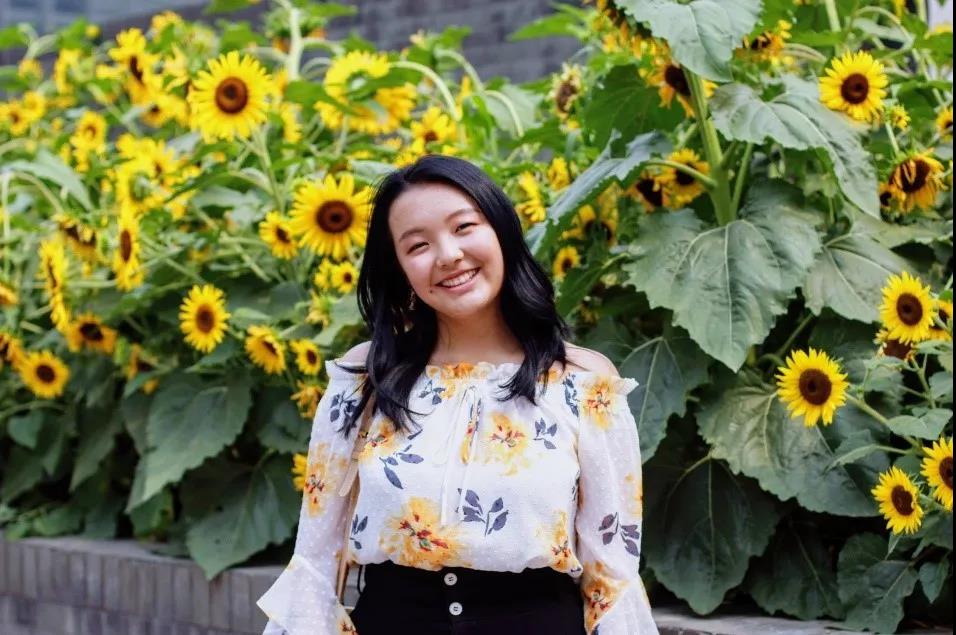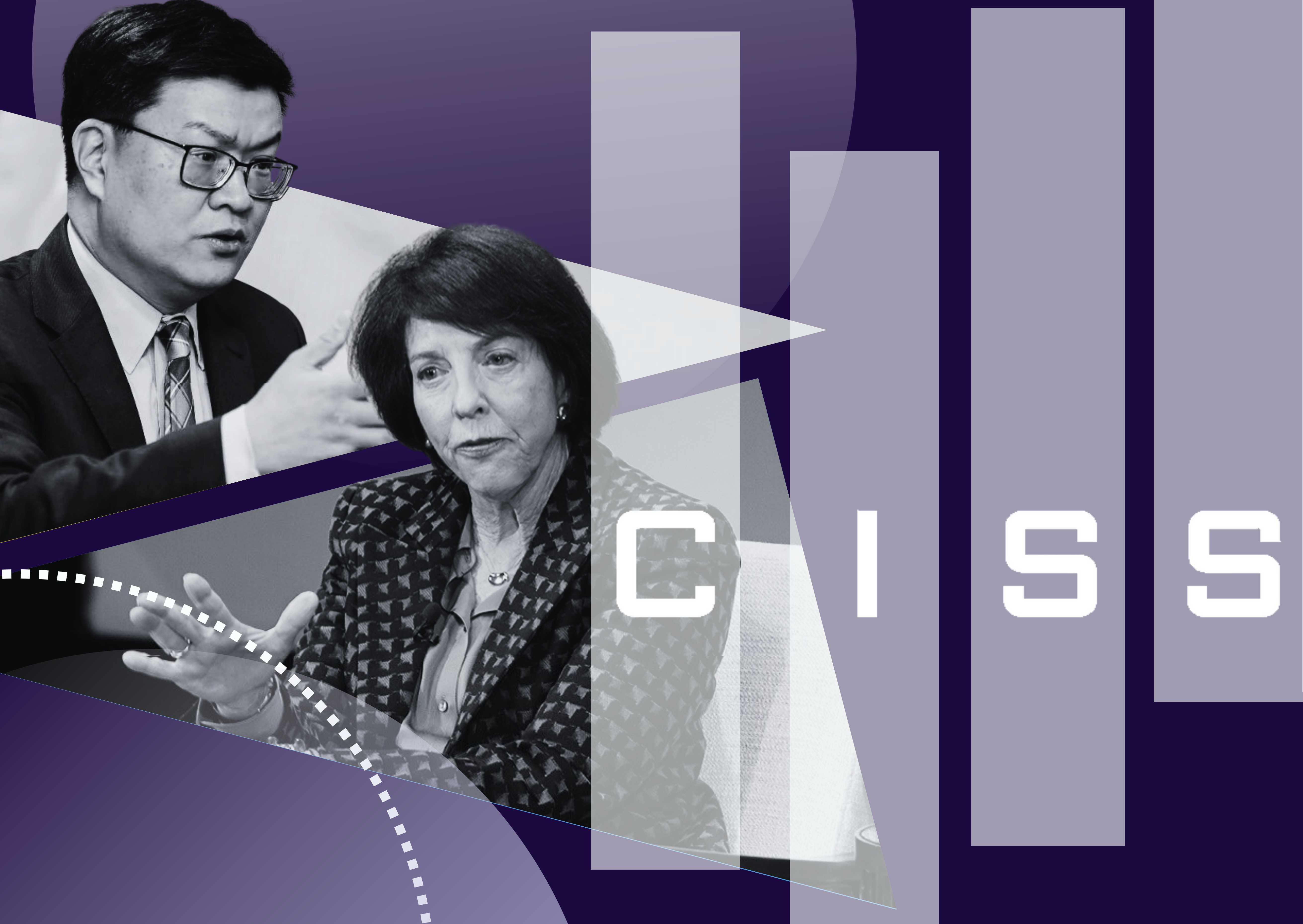
Feast your ears on an inspiring discussion
between top students from China and the US
in the "Cross-Pacific Talks" podcast series.
Co-produced by China Plus, CISS and IMUSE,
it offers a unique perspective on topics related to COVID-19 !
During the COVID-19 outbreak, international students particularly experienced a lot of difficulties. For the second episode, we are focusing on a special group of students who are either from the U.S. but studying in China, and vice versa. We’ll take a closer look at the changes in their lives and academic studies, as well as how they see today’s changing world.
Who are they?
Jessica
Incoming sophomore in the School of International Relations at Peking University (PKU)
Grew up around multiple cultures, Jessica has grown to be interested in different cultures and how they interact with each other
INITIATING cultural conversation with her peers
PARTICIPATING in cultural activities like the International Cultural Festival at PKU
Loves to learn about and discuss culture. Enjoys dancing, listening to music, and playing guitar.
Tyler
Incoming senior in the department of chemistry, Tsinghua University
PARTICIPATED in international student events like global villages’ host, Hong Kong, Macao and Taiwan‘s event staff event
Enjoys playing volleyball and studying in the library.
Nancy HU
Junior at Harvard College studying statistics with a secondary in economics
INTERESTED in healthcare, logistics as well as international trade and relations.
INVOLVED currently in the administration of Harvard Model United Nationsand Harvard College China Forum, and has competed in debate and public speaking competitions
Loves composing and appreciating music, playing badminton, visiting galleries and museums, and visiting oceans around the world
Shushu FANG
Rising Junior at MIT, majoring in EECS and minoring in political science
Grew up in China and later came to US for high school and college.
Developed an interest in comparative politics and international relationsafter having experienced both Chinese and American systems.
Enjoys binge watching shows, playing squash, doodling and reading.
Q&A
Q1: How does Covid-19 affect your daily life? As an international student, have you encountered any difficulties (such as problems about communication across time zones, network connection, medical supplies, food, housing, transportation, etc.)?
Shushu
Actually when the pandemic was first starting, that was all my family was talking about. No matter what, we would always come back to COVID-19 and about this pandemic. Especially because both my parents are from China, so they have connection with China like the WeChat, looking on the news. So I think there is a higher chance that we would see things from both perspectives. Honestly, I think China tend to emphasize on the severity of this pandemic and how it’s really affecting lives. Although there is emphasis on in America, I think a lot of Americans may not be taking as seriously as Chinese people do.
Jessica
Q2: Have you recieved any help from the US/Chinese government? Did your school/community give your any assistance during this period?
Nancy
I do get my information from social media both in China the US. Since I don’t have like a physical subscription like Chinese magazines and newspapers, most of my sources of news are like WeChat, Weibo or other news websites in general. On the American side I have a subscription for Washington post and New York Times. I also read YouTube and other news agencies regarding information about corona virus.
I want to say something aboutuninformed versus misinformed. Misinformation may comes from anywhere accessible. Being uninformed may cause you to be misinformed for a long time. It actually comes down to one of the reasons why the US has a lot of cases. When reading these articles, some people can immediately realize whether it is a title grabbing article or an article that's worthwhile reading. But a lot of people know very little about the virus and just believe in the media, which makes them misinformed. After they're misinformed, the next person that they inform is going to be misinformed as well. It's going to be a vicious cycle.
Tyler
Q3: Have you ever communicated with American/Chinese students about Covid-19? Are there any differences or similarities between your opinions?
Jessica
I think especially because Peking University is very very highly ranked, and a lot of students are very well achieved, when I first went there I did feel a little bit pressured. But at the same time I do feel it was good pressure and I think the students pushed me to work harder. With no stereotypes, this is 100 percent true from what I have witnessed in America verses from what I have witnessed in China, that the Chinese students I met were much more hard-working and their education environment really pushed me to work harder. In terms of the education system, I have never attended university in America, so in that sense I cannot give a very accurate comparison. But in general, I feel like it was not that big of an issue. I just slowly adapt like how I would adapt if I went to college in America.
The middle school I came from was definitely a very competitive environment that students there are all overachievers and strive to be better, which I sort of enjoy. But there's definitely a lot more pressure on academics than other aspects of life. I wouldn't say people in China have a narrow focus but sometimes in school you don't get to explore your other parts of yourself--you sort of have to focus on academics. But in a US high school, you haveopportunities to pursue other interests of yourself. In college, I feel like people are again become overachievers at MIT and a lot of people have imposter syndrome about not feeling good enough. I'm sure it’s also a thing at Harvard or at Tsinghua as well. But I do feel like it's a verycollaborative environment that when you struggle for problems cooperating with your friends, we're not trying to be a better person than others, but to be a better self, which I really enjoy.
Shushu
Q4: What soical media do you commonly use? Do you use soical media from both countries? (WeChat, Weibo, Facebook, Twitter) Which media did you follow during the crisis? Do you think the media in your country clearly and correctly present the situation and opinions of people/society in this crisis? (Any examples?)
Nancy
The way America works is what they called it nightmare. The president can't get in with the state affairs. For us is Charlie Baker of Massachusetts. He made the rules for these social distancing and phase openings. And now we have stricter rules for we have some cases that need special attention. But for states like Texas which didn't have a lot of cases, the governor probably didn't pay too much attention and they were probably very loose with the rules, they probably didn't even have social distancing or recommended masks. Those are the case for Florida. Florida didn't care for it and didn't tell any of their people to wear masks. The shops and markets remained open. And now there's consequently a spike in their cases.
Tyler
Q5: How do you be adapted to a new environment, education environments and because you have professors and teachers, you have different practices probably from your previous school, for example. So how are you doing with the new environment?
Shushu
On top of that I just want to add something quickly. These news sources tend to be labeled as left wing or right wing. How people label them makes a difference on what media you listen to.
Tyler
Q6: In terms of the measures China and the US have taken to control the spread of the virus , is there anything you think both countries should learn from each other or they could have done a better job?
Shushu
These years, it was trump's America first which a lot of people happened to agree with, and US is pulling out of so many global treaties. It seems that globalization is basically in the past tense right now. And For economics you have a period of contraction and a period of boom, but we should try to minimize the differences in the waves and make them come back to the right track sometimes soon. I'm not saying globalization is a right track, but I'm saying that maybe we can minimize the damage being done by anti-globalizationespecially there's much hostilities between those 2 countries. And if there are some sincere talks, I think it will help to minimize it.
Although the current situation has had a costly physical interaction between people but fortunatelywe don't have like full cut off the flood of information around the world and we do see like stocks and items are still being transported and moving around the world. Tied to this kind of going backwards to globalization,it's important to be prudent about categorization and labeling things. I think that bynot conforming to the stereotypes, it's what makes it really important for us to understand another culture much better. Like what Hegel said, history is itself in a spiral. Maybe we can progress to a new level of cooperation worldwide by going through these kinds of challenges.
Nancy
Jessica
The public opinion is also very important. From a cultural aspect I think just conversing can help us to educate ourselves about the other culture, and about the people around us that are different from us. Although that isa small step, it can add up tomore understanding between two different cultures in two different countries.
On the whole, things will go to a new equilibrium, thus we can work together comfortably again. For individuals like us, what we can do is to maintain respect for people from different countries and help each other get through difficulties.
Tyler
Q7: Have you noticed the cultural differences revealed in handling this crisis? (For instance, people in some European countries think the lockdown and social distancing practice toke away their freedom, while in Asia, most people view them merely as health problems.)
Shushu
I want to do something that's CS-related. Both China and US have a booming tech industry, so both of them have great work opportunities. I'm personally leaning towards staying here because work-life balance is better here. But of course with all the restrictions on a work visa H1B and a student visa and especially the OPT, the Optional Practical Training for international students, it might become harder and harder to find a job here and also stay here. Unter these ciecumstances, I might go back to China or stay here, it just basicallydepends on where opportunities present itself.
For me I don't really consider much about which country to stay. I'm studying statistics and economics, so potentially I will do something related to either trading or data science. I thinkboth economies have a lot of opportunities for me, and I am still finding more information about that.
Nancy
Jessica
I just finished my first year so right now I don't really have much ideas about my future career yet. But I don't think it has really affected what I'm going to choose in the future.
I think Shushu and Nancy said a very key word. Whatever you can do depends on what opportunities you have, what skills you acquire along the way, and how you can use these skills. No matter what, I believe as long as you have skills and you have people that know your skills, you'll be a pretty valuable asset to any company.
Tyler










